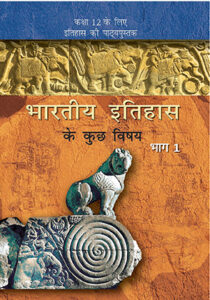In recent years, revisions to Indian school textbooks, especially those concerning the History subject by NCERT, have sparked significant controversy.
STUDENTS STEPPING OUT of schools from next year will have no knowledge of the events leading to the demolition of the Babri Masjid structure in 1992 at Ayodhya. This includes the Rath Yatra, the kar sewa that attracted thousands to Ayodhya, the subsequent communal violence, and the dismissal of the BJP government in Uttar Pradesh after the demolition.
Instead of referring to the disputed Babri Masjid, the new textbooks don’t even name it but rather call it a “three-domed structure.” References in the textbooks to the “regrets” expressed by BJP leaders after the incident have also been omitted.
 The latest revision in textbooks by the National Council of Educational Research and Training (NCERT), under the Ministry of Education, marks the fourth round of changes since the advent of the Modi-led government in 2014.
The latest revision in textbooks by the National Council of Educational Research and Training (NCERT), under the Ministry of Education, marks the fourth round of changes since the advent of the Modi-led government in 2014.
The council, responsible for approving school textbooks, is making sweeping changes to the content, attempting to distort and rewrite history.
Previously, the Council removed all references to the 2002 Gujarat riots from two political textbooks for Class 12. These references covered the chronology of events, including the burning of a train compartment full of karsewaks at Godhra followed by violence against Muslims.
It also included the National Human Rights Commission’s criticism of the then Gujarat government’s handling of the situation.
A deleted passage stated, “Instances like in Gujarat alert us to dangers involved in using religious sentiments for political purposes. This poses a threat to democratic policies.” Additionally, the famous remark of the then Prime Minister Atal Behari Vajpayee about “Raj Dharma” has been expunged.
A paragraph describing how communalism drives people to “kill, rape, and loot members of other communities in order to redeem their pride, to protect their home turf” was removed.
The deleted passage also mentioned, “The two most traumatic contemporary instances of communal violence occurred under each of the major political parties. The anti-Sikh riots in Delhi in 1984 took place under the Congress regime. The unprecedented scale and spread of anti-Muslim violence in Gujarat in 2002 took place under the BJP Government.”
 References to several protests and social movements such as the Chipko movement, agitation by the Bhartiya Kisan Union, Narmada Bachao Andolan, and the movement for Right to Information have been removed from the textbooks.
References to several protests and social movements such as the Chipko movement, agitation by the Bhartiya Kisan Union, Narmada Bachao Andolan, and the movement for Right to Information have been removed from the textbooks.
Additionally, historic references and protest movements like Naxalism and insurgencies in the northeast have also been omitted.
When asked about the removal of these facts from history and political science books, the director of the council justified it by asking, “Why should we teach about riots in school textbooks? We want to create positive citizens, not violent and depressed individuals.”
 This argument is flawed because hiding facts from history serves no purpose and can prove counterproductive. An avowed objective of the New Education Policy announced by the Modi government is to “enhance critical thinking among students,” yet the current actions are in stark contrast to this goal.
This argument is flawed because hiding facts from history serves no purpose and can prove counterproductive. An avowed objective of the New Education Policy announced by the Modi government is to “enhance critical thinking among students,” yet the current actions are in stark contrast to this goal.
Moreover, tomorrow’s youth might develop a cynical attitude towards the credibility of history and political science books being taught in schools. Ironically, attempts are being made to conceal facts in an age where information is readily accessible and hiding anything is nearly impossible.
The government and the courts must intervene to prevent the distortion of history. Interpretations of events may vary, but facts must be presented to students without bias. They should not be deprived of knowledge about developments that have shaped the country’s growth and destiny. ![]()
Disclaimer : PunjabTodayNews.com and other platforms of the Punjab Today group strive to include views and opinions from across the entire spectrum, but by no means do we agree with everything we publish. Our efforts and editorial choices consistently underscore our authors’ right to the freedom of speech. However, it should be clear to all readers that individual authors are responsible for the information, ideas or opinions in their articles, and very often, these do not reflect the views of PunjabTodayNews.com or other platforms of the group. Punjab Today does not assume any responsibility or liability for the views of authors whose work appears here.
Punjab Today believes in serious, engaging, narrative journalism at a time when mainstream media houses seem to have given up on long-form writing and news television has blurred or altogether erased the lines between news and slapstick entertainment. We at Punjab Today believe that readers such as yourself appreciate cerebral journalism, and would like you to hold us against the best international industry standards. Brickbats are welcome even more than bouquets, though an occasional pat on the back is always encouraging. Good journalism can be a lifeline in these uncertain times worldwide. You can support us in myriad ways. To begin with, by spreading word about us and forwarding this reportage. Stay engaged.
— Team PT

